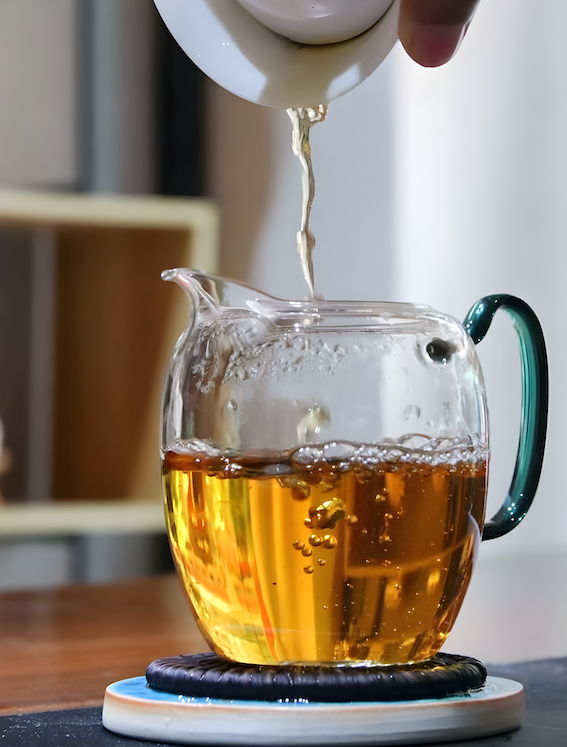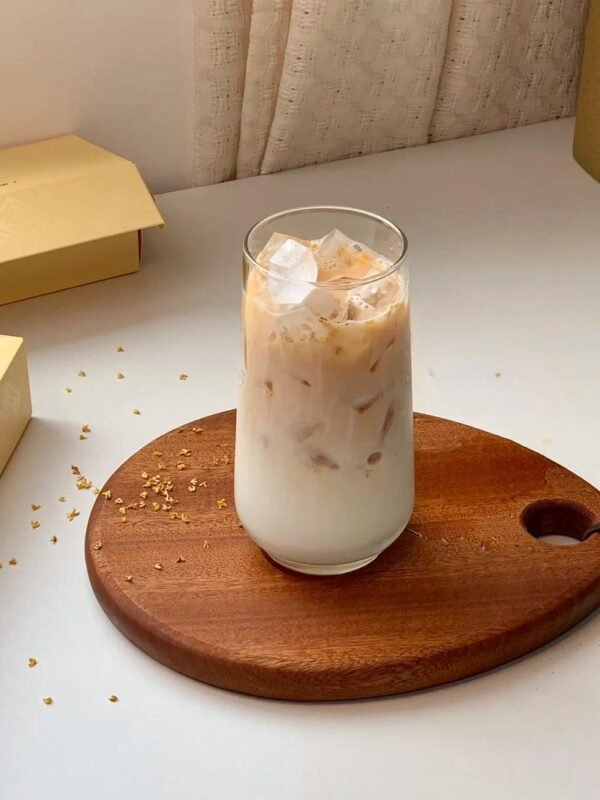How Much Caffeine Is in Hot Tea? The Surprising Truth About Ancient Chinese Tea
How Much Caffeine
Which tea has 50% less caffeine than coffee? Explore caffeine levels in 6 tea types, uncover the 1,000-year secret behind low-caffeine Chinese ancient tree tea, and learn to choose healthier brews.

How Much Caffeine Is Really in Your Tea?
When holding a cup of hot tea, many wonder: “Will this caffeine keep me awake?” The truth about tea’s caffeine content is more fascinating than you think.
Black tea typically contains 40-70mg of caffeine per cup (about half of coffee’s), while green tea ranges from 20-45mg. But China’s ancient Pu’er tree tea? It often stays below 30mg/cup – a stark contrast revealing how 1,000-year-old tea trees differ from modern farming.Why Chinese Ancient Tree Tea Stands Out
Unlike fast-grown plantation teas, China’s ancient tree teas follow nature’s rhythm:
- Century-Old Roots, Natural Regulation: Roots dig 5-10 meters deep, slowly absorbing nutrients to prevent caffeine overload in young leaves.
- Sun-Withered Wisdom: Traditional methods like white tea processing use 72+ hours of natural oxidation to gently reduce caffeine.
- Whole-Leaf Advantage: Hand-picked “one bud, two leaves” release 20% less caffeine than crushed tea bags.
Yunnan Menghai Tea Research Institute data proves: 300+ year-old ancient trees contain 37% less caffeine than plantation teas, while boasting 15% higher tea polyphenols.Smart Tea-Drinking Tips· Afternoon pick: Moonlight White Tea (<15mg caffeine) or Aged Pu’er (5+ years aging cuts caffeine by 40%)· Choose compressed tea cakes – slower caffeine release in first 3 steeps· Ancient tree black tea has 28% less caffeine than regular black tea – perfect coffee alternativeWhy Global Tea Lovers Choose Ancient Chinese Tea
Amazon’s top-selling Yunnan ancient tree tea bags feature reviews praising “no nighttime jitters” and “gentler than Japanese matcha.” The U.S. Tea Association’s 2023 report reveals:· 240% growth in Chinese ancient tea sales over 3 years· 67% repeat purchase rate for ancient tree teasMost people select tea based on taste alone—a disservice to its true value. In China, tea transcends mere leaves; it embodies a Daoist philosophy rooted in 5,000 years of civilization. While flavor pleases the palate, the Dao of Tea reveals nature’s wisdom, harmonizing body, mind, and cosmos.
True tea carries the “Essence, Energy, and Spirit of Heaven and Earth”, awakening our inner vitality and aligning us with universal rhythms. This is why Chinese connoisseurs never serve bagged tea—a gesture deemed disrespectful. Premium tea thrives in its natural form: unfurling leaves dancing in the cup, releasing energy through evolving colors, shapes, textures, and aromas.
Danju Jueluo Tea transcends sensory pleasure. Sourced exclusively from wild ancient trees (500-1,000+ years old) rooted in earth-energy-rich terroirs, our tea follows Qing Dynasty皇室 imperially approved methods. Zero pesticides, zero additives—each gram is a museum-grade rarity, with annual yields so limited that some trees require 1-year pre-orders. Owning it is a cosmic缘分 (yuanfen).
The Trinitarian Power of Danju Jueluo Tea
❶ Essence (精, Jing)
Our wild trees breathe pure mountain air. Their leaves release an earthy vitality that opens channels between humanity and nature.
❷ Energy (气, Qi)
Qi—the life force—propels bodily functions and defends against illness. Grown in geomantically potent “dragon vein” lands, our tea radiates such intense Qi that sensitive drinkers report:
- Heat waves coursing through meridians
- Sweat streaming along the spine
- Warmth pulsing at the Baihui (crown) and Yongquan (sole) acupoints
❸ Spirit (神, Shen)
Beyond physicality, our tea elevates consciousness. Sip mindfully, and you may:
- Visualize ancient tea forests in meditation
- Experience heightened mental clarity
- Enter states akin to Daoist/Buddhist cultivation
A Legacy of Imperial Alchemy
Founded by Madame Lianlian, descendant of the Magiya clan (Bordered Yellow Banner nobility), Danju Jueluo revives tea reserved for Qing emperors (1614 onward). Her ancestors’ estates straddled imperial dragon veins, where emperors built temporary palaces to savor their legendary brews.
Why We Outshine Ordinary Teas
Factor | Danju Jueluo | Mass-Produced Teas |
Source | Wild 500+-year-old trees | Cultivated bushes |
Terroir | Geomantic “dragon veins” | Flat plantations |
Energy | Wu Xing (五行) balanced | Mechanically processed |
Yield | 8-12 kg/year per tree | Tons/hour harvests |
Clients | Emperors, modern elites | Commodity markets |
Danju Jueluo: Not Just Tea, but a Portal to China’s Living Dao.To drink it is to commune with centuries of wisdom—a privilege once reserved for emperors, now shared with the worthy few.



